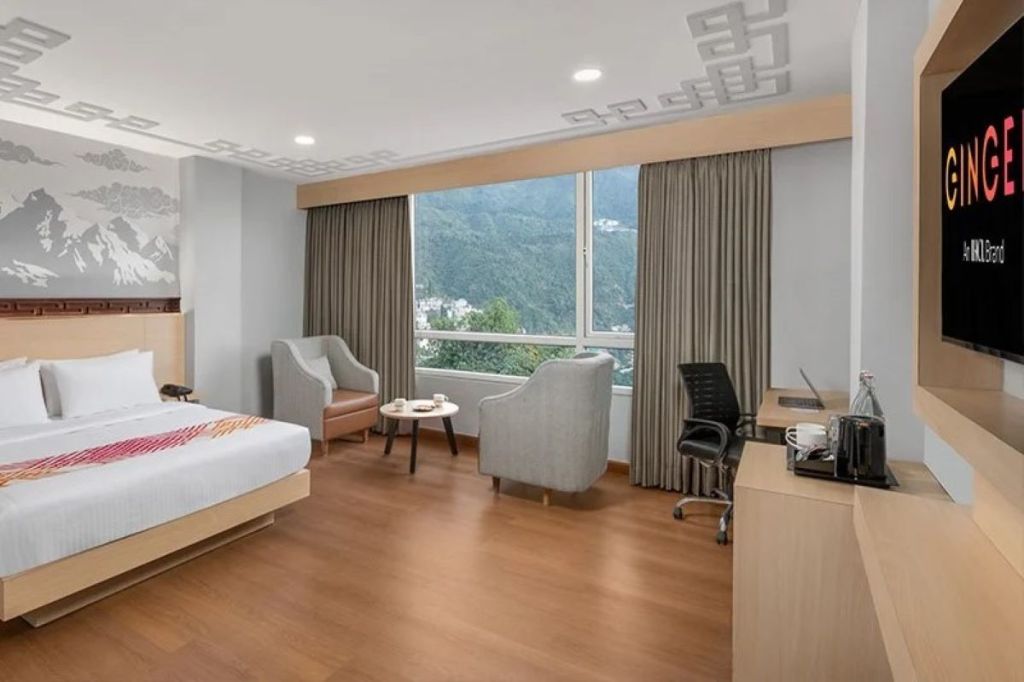
Taj-parent Indian Hotels Company Limited (IHCL) announced on Tuesday that it has increased its portfolio to 380 hotels through 100 new locations, including 74 signings and 26 openings.
The company aims to grow its portfolio to 700 hotels by 2030 under its Accelerate 2030 roadmap.
Last week’s spate of announcements, including from Accor, Radisson, IHG, Hyatt, Ascott and Marriott, are the latest illustration of the race for global hotel brands to stake their claim in India.
IHCL achieved a record 74 signings in the last fiscal year (2024-2025) ending March 31. This resulted in a leading pipeline of 137 hotels, said Suma Venkatesh, executive vice president — real estate and development, IHCL.
“A significant share of the signings were in Gateway and Ginger brands, reflective of the fast growing upscale and midscale segments in India,” Venkatesh said. During the period, Ginger grew to a portfolio of over 100 hotels and Vivanta reached more than 50 hotels.
The company also expanded its international presence by adding over 800 keys in the Middle Eastern markets of Bahrain and the UAE city of Ras Al-Khaimah.
The Last Reported Quarter for IHCL
In its quarterly results for the period ending December 31, 2024, the company’s EBITDA exceeded INR 10 billion ($117 million) for the first time ever. This performance was driven by a 29% jump in revenue and a record profit after tax of INR 5.8 billion ($68 million).
The company also noted a RevPAR premium of 78% higher than the industry average in the Indian hospitality market.
IHCL CEO, Puneet Chhatwal, said during the last earnings call that he expects the fourth quarter to show similar growth in top-line numbers and other metrics: “We are confident of definitely delivering on the double-digit growth that we have promised and guided the market on from the previous year,” Chhatwal said in January.
The final results for the fourth quarter are expected later this month.
The Reinvention of Ginger Hotels
One major part of IHCL’s transformation is the reinvention of the Ginger brand. Earlier known for its budget offerings, Ginger has now had an upgraded and targets more premium customers.
The brand’s evolution includes service upgrades, a new all-day dining concept, and renovations across its properties. These changes have helped increase occupancy rates, and the management sees Ginger as a key driver of future growth.
Chhatwal explained that Ginger in its new form has only been around for a few years. He recalled that after opening the first reimagined Ginger hotel, Covid hit within eight or nine months.
Now, the properties are at different stages of renovation, and Chhatwal expects Ginger to continue to perform well.
“Definitely after Taj, our second most important brand in the next few years to watch… will be the Ginger brand,” he said.
Building Loyalty and Repeat Business
Customer retention and loyalty are also important to IHCL’s growth strategy. The company’s partnership with the Tata Neu loyalty platform has led to significant benefits.
Membership numbers have risen to 8 million, and loyalty now drives 40% of the enterprise revenue.
For a brand like Ginger, this focus on loyalty is important as it brings in a lot of repeat business.
Chhatwal highlighted that since the launch of Taj Inner Circle, the earlier loyalty program, it took nearly 17 years to reach 2 million members, but after joining Tata Neu, the loyalty base increased fourfold in less than four years, with active loyalty users growing five times over.
The digital initiative has helped IHCL use customer data to improve repeat business and attract major events in cities like Delhi and Mumbai. Chhatwal said, IHCL expects the loyalty program to surpass 10 million members.
Accommodations Sector Stock Index Performance Year-to-Date
What am I looking at? The performance of hotels and short-term rental sector stocks within the ST200. The index includes companies publicly traded across global markets, including international and regional hotel brands, hotel REITs, hotel management companies, alternative accommodations, and timeshares.
The Skift Travel 200 (ST200) combines the financial performance of nearly 200 travel companies worth more than a trillion dollars into a single number. See more hotels and short-term rental financial sector performance.
Read the full methodology behind the Skift Travel 200.



